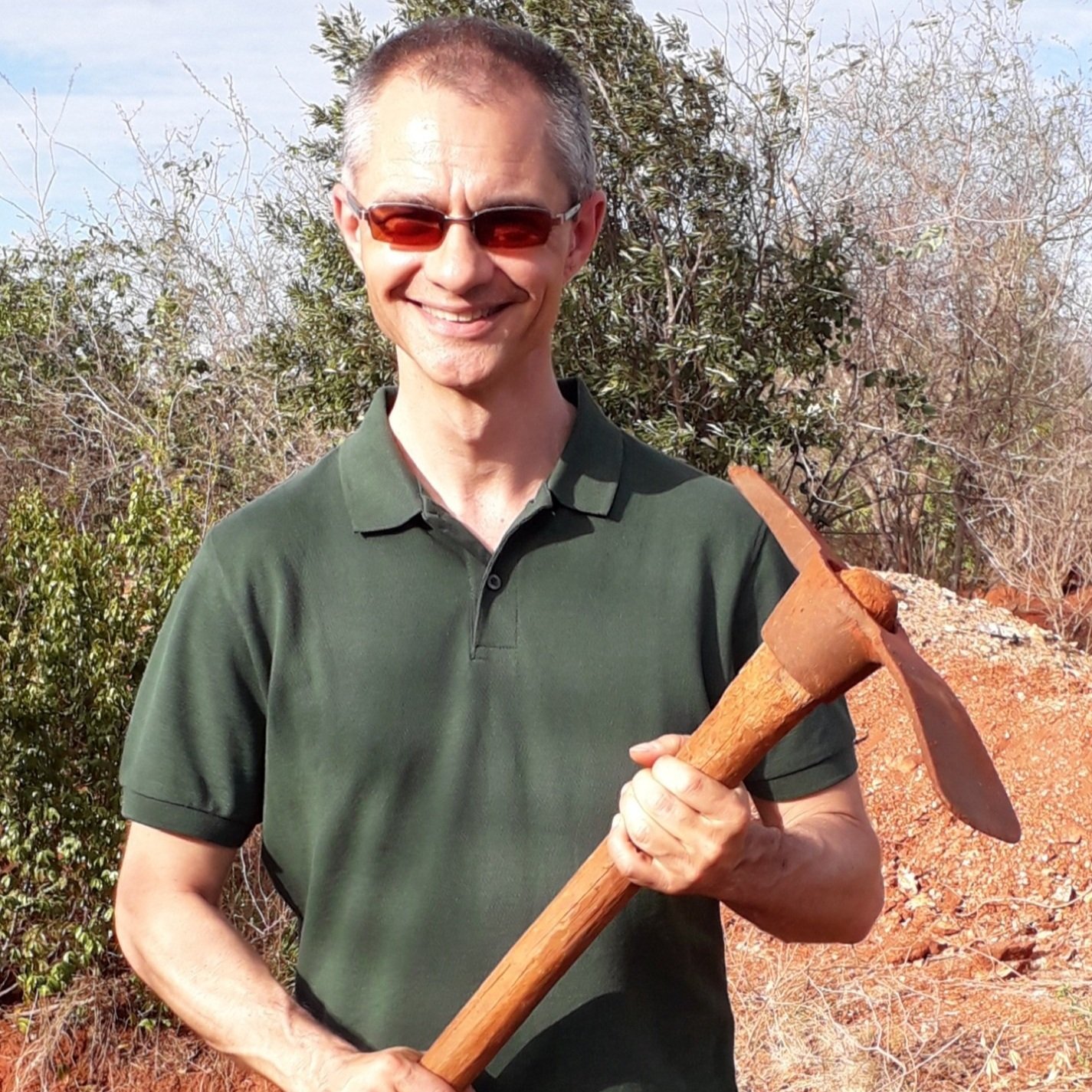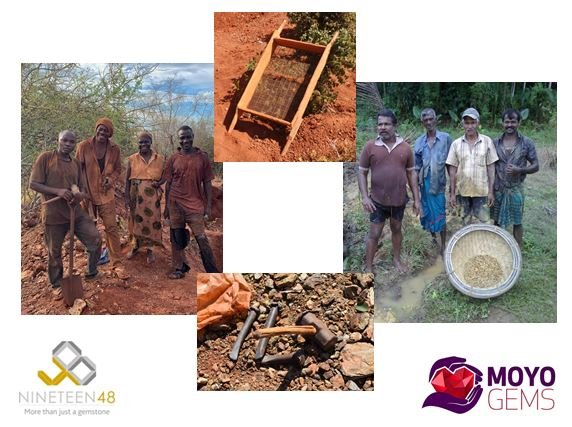Taking Positive Action | Ethical Making Ambassador Session
As part of the Ethical Making Pledge, we have biannual sessions with student ambassadors from across the UK-based signatory institutions. This academic year ambassadors have been invited to consider positive action(s) they can take: by identifying new opportunities, and maintaining pre-existing good practice.
First, programme manager for Ethical Making, Dr Karen Westland offered a re-cap on the introductory talks: these talks outlined different types of extractive mining and supply chains in base and precious metal industry. To follow on from this, we invited Stuart Pool to the Ambassador session, to share their experience.
Stuart is a specialist in responsibly mined and fully traceable coloured gemstones, mainly sourced directly from mines in Sri Lanka and Tanzania. He runs gem trading companies Nineteen48 and Crown Gems, as well as being one of the co-founders of Fair Luxury, a group focused on positive change in the jewellery industry and a key member of the Moyo Gemstones project.
Stuart works very closely with local mine owners to provide a mine-to-market service, from extracting the rough gem material and the cutting and polishing of gemstones, right up to the marketing and sale of gems to the end customer. The emphasis throughout the supply chain is on maximum transparency and fair rewards for everyone involved.
Stuart's companies support charitable projects in both Sri Lanka and the UK and he is also committed to educating the widest possible audience about the issues within the jewellery sector. He is supportive of many initiatives and programmes within the industry which are trying to improve conditions and benefits for those involved in all stages of the supply chains for diamonds, precious metals and gemstones.
During the session, Stuart shared their direct experience within the gemstone supply chain. To contextualise, ‘gemstones’ refer to any precious stone that is not a diamond. Approximately 80% of mined gemstones come from Artisanal and Small-scale Mining (ASM). These mining communities are often in remote areas without many options to generate a livelihood. In 2013, 60 - 150 million people globally were reliant on ASM activity for their income.
“When we are creating jewellery, the materials we are often using benefit millions of people, and give them an income when otherwise it might be very difficult.”
Stuart outlined the key stages of the supply chain he is engaged in, summarised below:
Mining
The mining teams are often using hand tools to acquire the gem-bearing gravel from the ground. This can be as basic as an iron bar to dig the gravel and a plastic bucket to wash the gravel, or in Sri Lanka - considered to have some of the best ASM practices globally - there will be shaft mines as deep as 35meters made with natural materials. In ASM it is very hard manual work to simply get the gems out the ground.
Washing & initial selection
The non-descript gem-bearing gravel is taken to the senior miners to select the precious material. Many ASM communities cannot afford mechanised equipment (e.g. diggers or sluices) to help with the heaving lifting and separating the gem material from the non-precious. In some sites such as in Australia, the US and Canada, you may see this equipment on ASM sites.
Sorting
Different qualities are selected by very experienced traders/experts, who sort the material into different grades. A very small selection of valuable material is left, from which the miners generate their income. This is the stage that Stuart visits the miners for a general assessment of the material and negotiation. For Stuart, ensuring that the miners are being paid fairly for the material that they are selling was key, to maintain a positive social impact. It’s not about subsistence; but ensuring that the miners can make a living, provide for their families and invest in their community. Traders play a crucial role in relation to social impact in the supply chain.
Cutting
The amazing talents of the gem cutters come into play at this stage. The rough material is preformed (giving the approximate shape of the desired gemstone) before being cut and polished. Like with the mining, there are different supply chain challenges. Ensuring the cutters are working in a safe environment in addition to fair pay so the cutters can make a living from their activities. Stuart indicated that care needs to be taken to ensure the social impact is what we want it to be when thinking about responsible sourcing.
Left image: Tanzania mining team. Right image: Sri Lanka mining team.
The Q&A after Stuart’s talk raised issues around why responsible practices were important. Stuart recognised that there are huge challenges (e.g. child labour and illegal mining in protected areas) and more convincing needs to be done around developing more responsible practices in the industry.
“There has been a lot of exploitation, especially in the areas in which I work with the miners and the cutters. As an industry we have benefitted, unfortunately, from this imbalance in the supply chain, where the miners and cutters were not paid fairly.
This is why this topic is important to me and why I choose to work in that part of the supply chain, where I feel I can make the biggest difference. ”
Stuart emphasised a sensitivity toward specific circumstance: every mine will have different ‘normal’ activities and behaviour within those communities. It might appear to be easy or appropriate to try to impose a certain way of thinking, but Stuart aims to work with miners and cutters to develop an understanding of what is really going on before working with communities on suitable solutions and how to best collaborate on them.
The latter half of the session explored how ambassadors can take positive action(s) within their institution. This was discussed through break-out rooms and collectively, in addition to directing ambassadors to speak with their peers, tutors and to look through past Ambassador blogs, to gain further insight into what they could do through their voluntary role over this academic year.




